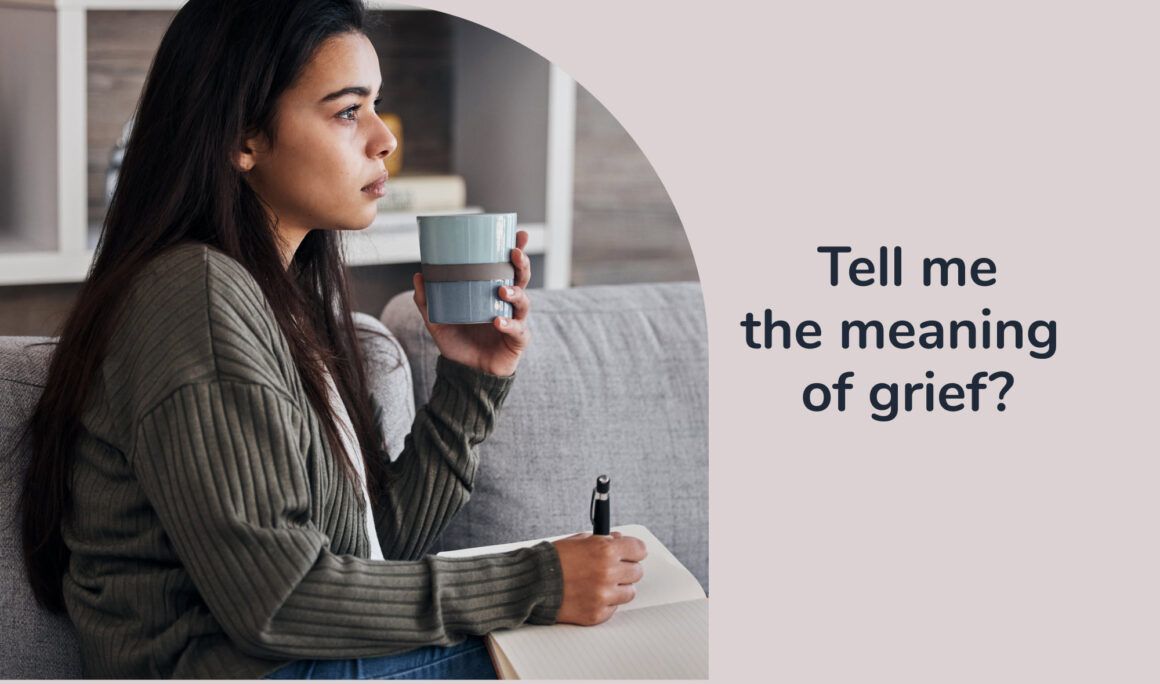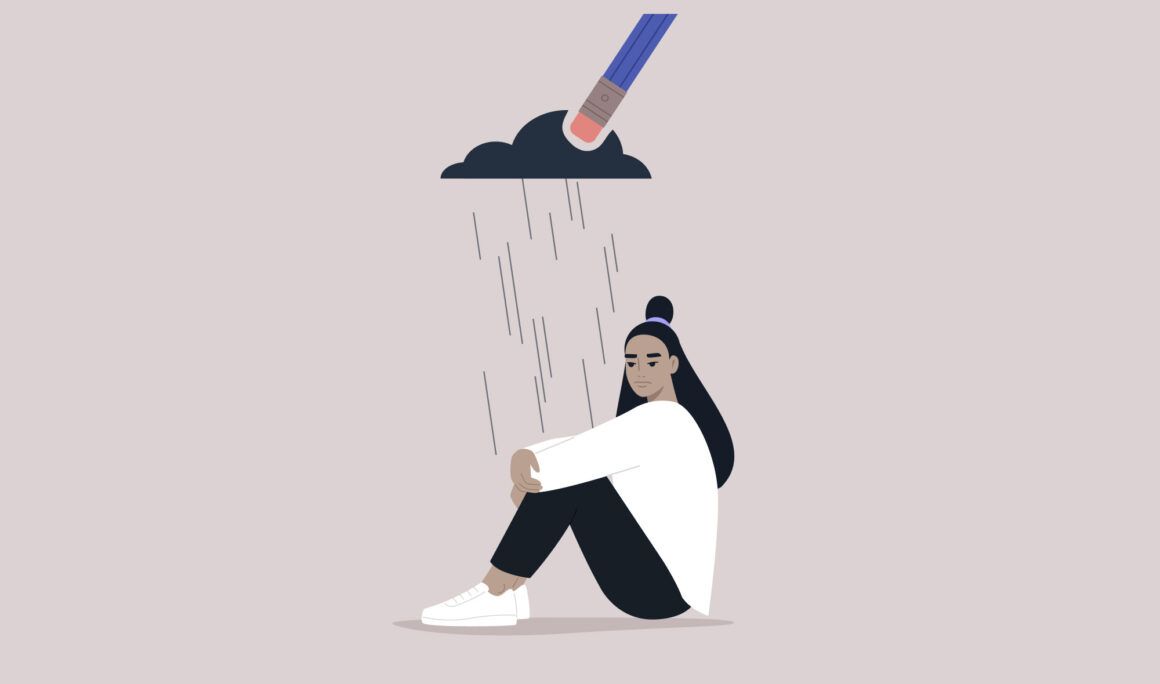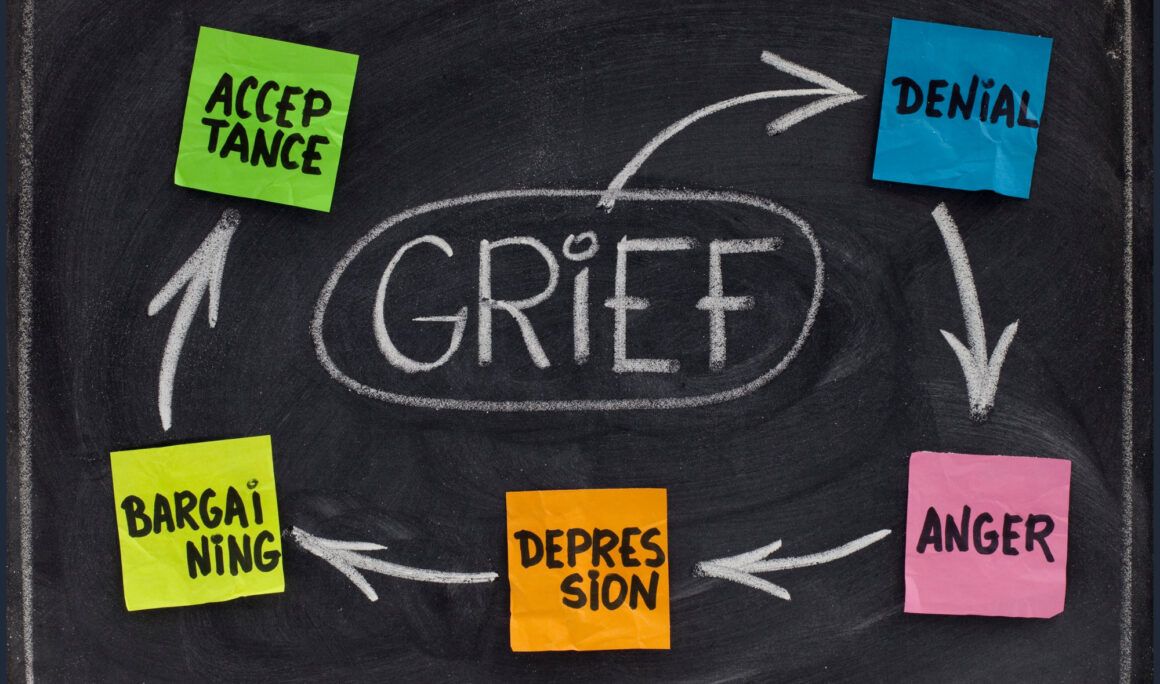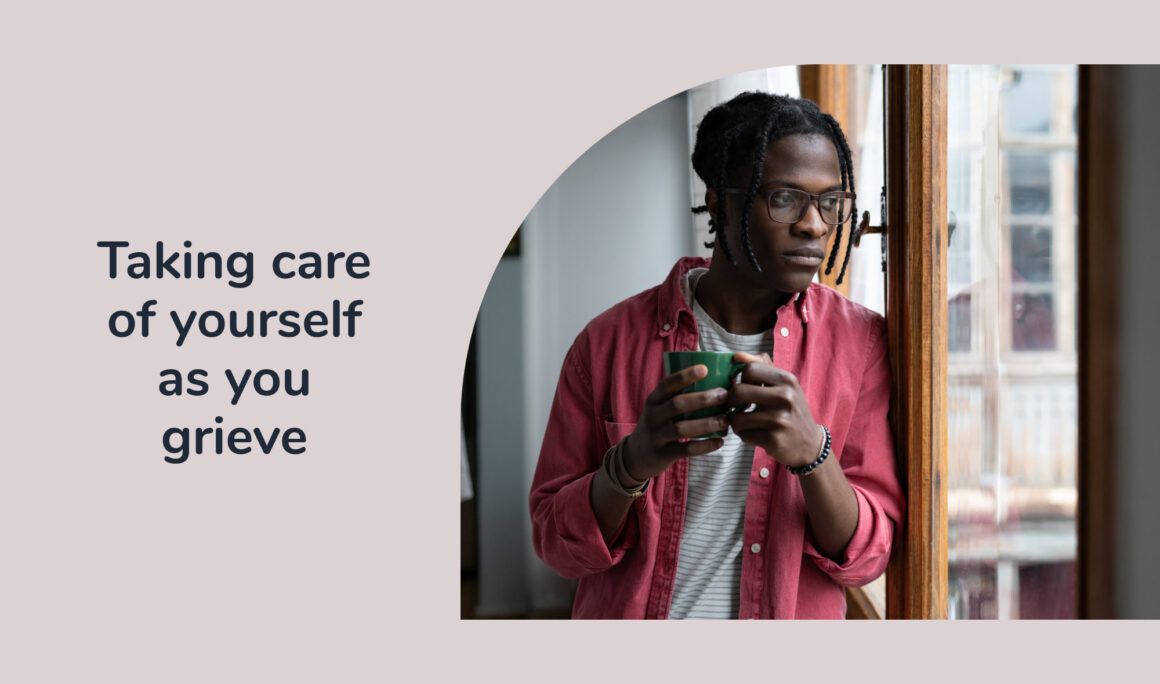Disenfranchised grief: when grief and grievers are unrecognized
By Julian Lewis • December 27, 2022

Often in today's society, grievers are left feeling alone and misunderstood, as if their pain doesn't matter. This can be very damaging to the grieving process and can cause long-term emotional damage. It's important for society to be more aware of grief and the effects it can have on people, in order to provide support to those who need it.
Gaining awareness about this topic is absolutely critical, as it can have a significant impact on the well-being and mental health of grieving individuals around. To begin, you must first understand the meaning of grief.
Tell me the meaning of grief.

Grief is a multifaceted emotion that can be experienced in physical, mental, and spiritual ways. It is a natural response to loss or change and can be felt when someone or something important to us has been taken away. This powerful emotion can affect how we think, feel, and act, and can range from mild sadness to deep despair depending on the circumstances.
Types of grief
Although there are many types of grief, most grief can be categorized into one of the following three types:
Anticipated grief
Anticipated grief is a kind of grief that is experienced in anticipation of a loss. Individuals who experience anticipated grief are aware that the loss will occur, and thus they begin to grieve before the actual event has taken place.
It is often seen in cases where the individual knows that someone they care about is terminally ill or has been given a terminal diagnosis by a doctor. Anticipated grief can last for an extended period of time, and it is also possible to experience more than one type of grief at the same time.
Complicated grief
When an individual experiences intense and prolonged grief following the death of someone close to them, they often struggle with what's known as complicated grief. This type of grief can feel particularly overwhelming, making it difficult to cope with normal day-to-day activities. In some cases, complicated grief may affect an individual's ability to function normally, leading to feelings of depression or anxiety.
An example of complicated grief can be seen in the case of a parent who loses their child. This type of loss often causes intense and prolonged grief, making it difficult for the parent to move on or experience joy again in their daily life.
Disenfranchised grief
Disenfranchised grief is a sorrowful response to a significant loss or life change that is experienced yet not acknowledged by society. This type of grief can occur in various contexts such as military service, infertility, miscarriage, death of a pet, suicide, and more.
When faced with the silence of societal acceptance of these losses, individuals experience a tremendous feeling of disconnection and isolation. Additionally, people may feel guilty or angry about their loss, experience heightened stress levels, or develop chronic health conditions as a result of their disenfranchised grief.
Causes of Disenfranchised Grief

This type of grief is often overlooked or ignored because it doesn't fit into the "traditional" model of grief that we see portrayed in the media. As such, many of those suffering from disenfranchised grief go without the care and support they need because their grief or loss isn't seen as valid or important.
Some of the causes of this disenfranchised grief include when:
The loss is not recognized
One of the most common examples of when a loss is not recognized by society is the death or absence of a beloved pet. Despite the fact that pets are an integral part of many people’s lives, they are often ignored when it comes to grief and bereavement. This kind of loss can be particularly painful for those who have had close bonds with their pets and have experienced a loss of support or companionship when their pet is no longer there.
Other losses that are more often overlooked include things like losing a job, going through a divorce, or struggling with mental health issues. Many people are hesitant to talk about these experiences due to the negative stigma surrounding them and may receive little or no support following a loss of this nature.

The Griever Is Not Recognized
Another common cause of disenfranchised grief is when loved ones fail to recognize or validate the pain and loss experienced by the griever. This can be due to a number of factors, including not wanting to face their own feelings about the loss, lack of awareness around the grieving process, or simply a lack of time and energy to support those who are hurting.
This cause of grief is particularly common in cases of loss surrounding mental health issues and addiction, as the person struggling with these issues may often be dismissed or ignored by others. This can make it even more difficult for them to cope with their feelings of grief or significant loss, as they may feel that no one understands what they are going through.
The relationship is not recognized
Disenfranchised grief can also occur when a relationship is not recognized or valued by society. This can be due to issues such as age, gender identity, race, or sexual orientation.
For example, people may face ridicule or stigma if they experience grief following the loss of a same-sex partner or relationship. Additionally, older individuals may not receive the same level of mourning following a loss as younger people, simply because they are viewed as being closer to the end of their lives.
In order to provide better support and care for those experiencing disenfranchised grief, it is important that we recognize and validate these kinds of losses within our society, and make sure that everyone has access to the support they need. This may involve providing more resources around grief and bereavement, or simply making a conscious effort to be more aware of the needs of those who are grieving in different ways.
Ultimately, when we provide this kind of care and support, we not only help individuals facing disenfranchised grief, but also strengthen and build our communities as a whole.
Symptoms of grief
Coping with grief and loss is a difficult and complicated process, as the symptoms may vary from person to person.
The hallmark symptom of grief is sadness, which may be accompanied by feelings of emptiness and despair. In addition, you may feel a sense of shock or denial when you experience the loss. Let's take a deeper dive into the physical and emotional symptoms following a major loss:
Physical symptoms of grief
This can include changes in appetite or sleep patterns, loss of energy, and even aches and pains. You may also experience racing thoughts about the person who died, complex or confusing emotions, or a sense of detachment from others.
Emotional symptoms of grief
Typically those experiencing physical grief symptoms are more likely to experience emotional pain as well. These can include feelings of guilt, anxiety, anger, depression or hopelessness, or difficulty concentrating.
Although these symptoms are a normal part of anyone's grief experience, they can also be the easiest ones for friends and family to overlook. And in the case of disenfranchised grief, those who are grieving may not feel as though their emotions can be openly acknowledged. Hidden grief can cause someone to feel ashamed, isolated, or alone in their experience and increase their risk of developing mental health conditions such as depression or PTSD.
Society's Expectations of Grief
Unfortunately, society expects us to mourn the loss of a loved one in a very specific way. Otherwise, social support runs out. We are often pressured to act a certain way and follow a certain timeline, but what if that's not what we feel comfortable doing?
There are no right or wrong ways to grieve, and it's important to do what feels best for you and your family. Grief is a very personal experience, and it's ok to take your time and mourn in your own way.
The grieving process

Grief is a complex and often difficult process that occurs in response to loss or change. During the grieving process, individuals may experience a wide range of emotions such as sadness, anger, shock, anxiety, depression, and guilt. In many cases, people who are grieving go through a grieving cycle that includes five stages:
The five stages of grief
1. Denial: When faced with a loss or significant change, it is normal to avoid feelings and experience emotional numbness and disorientation. This initial stage of grief may last for several days or longer, depending on the severity of the loss.
2. Anger: As the initial shock of grief subsides, feelings of anger and frustration may emerge. Many people struggling with grief experience intense anger that can be directed at others or even themselves.
3. Bargaining and struggle: In this stage, people may begin to bargain with the idea of loss or struggle to understand why it has occurred. This may include making deals with a higher power or seeking a way to change or reverse the loss.
4. Depression and despair: As the reality of the loss begins to sink in, many people experience intense feelings of sadness, guilt, and despair. This stage can feel overwhelming, as it may involve a profound sense of emptiness and hopelessness, and can last for several weeks or months.
5. Acceptance and reconnection: In this final stage of grief, people begin to accept the loss or change and rebuild their lives in a different way. This can involve reconnecting with loved ones, finding new hobbies and interests, and taking advantage of mental health resources or self-help groups.
Although the healing process is often challenging, it is also an important way for people to come to terms with the loss. By understanding their emotions and the stages of grief, individuals can better cope with the difficulties that arise and grieve in a healthy way.
Taking care of yourself as you grieve

If you are struggling with disenfranchised grief or loss, it is important to remember that your feelings and experiences are completely normal and valid, even if they don't seem to fit into society's expectations of what grief should be. And most importantly, no matter what you're going through, it's important to take care of yourself. You may even discover or learn to be an alpha.
How do I cope with grief? Read ten tips for managing grief and getting through difficult moments
1. Take time for yourself - Make sure to schedule time for yourself, even if it is just 15 minutes of unstructured and uninterrupted activity each day. Find something that you enjoy doing and that helps you relax and focus on your feelings. This could be anything from painting, writing, listening to music, or taking part in a hobby or activity that you love.
2. Spend time with supportive friends and family members - It is important to surround yourself with people who make you feel supported, loved, and understood as you grieve. Lean on your loved ones for emotional encouragement during the grief process, and spend time doing things that you enjoy together.
3. Engage in self-care activities - Take care of your body and mind by practicing healthy habits like getting enough sleep, eating a nutritious diet, staying hydrated, and taking time for exercise or other relaxing activities. You may also find it helpful to talk with a therapist or counselor about your feelings as you grieve.
4. Find healthy ways to express and work through your grief - Whether it is through art, journaling, talking with a best friend or loved one, or practicing another form of self-care, there are many different ways to work through your own grief in a healthy and productive way. Remember that grieving takes time, so be patient and gentle with yourself as you move through this process.
5. Focus on your grief in small chunks - It can be overwhelming to think about all of the emotions and challenges that come with grieving a loss. Instead, try focusing on your feelings one day at a time, or even just one moment at a time, allowing yourself to fully experience what you're going through at that moment.
6. Seek professional support if you need it - Grief can be a very difficult and painful process, so don't hesitate to seek help from a therapist, grief counselor, or other mental health professionals if you feel like you need additional support as you work through your loss. You can also check with your health insurance provider to see if treatment options such as support groups and grief counseling are covered under your plan.
7. Remember that it's okay to grieve in your own way - Your grief may not look like the "traditional" grieving process that is often portrayed in movies, books, and other media. Remember that it's okay if you don't experience all of the typical stages of grief, or if your grief looks different from what you expected. Just focus on honoring your feelings and honoring your loved one's memory in a way that feels authentic and meaningful to you.
8. Take care of yourself physically - Along with emotional support, it is also important to take care of your physical health during times of grief. Make sure to get enough sleep, eat a balanced diet, and engage in regular exercise or physical activities. You may also find it helpful to see a doctor if you are a person experiencing any health-related symptoms as a result of grief, such as headaches, fatigue, aches and pains, or digestive issues.
9. Remember that healing takes time - Remember that grieving is a process that can take time and will look different for everyone. Don't rush yourself or try to force yourself to "feel better" too quickly – just focus on healing at your own pace, and know that you will eventually get through this difficult time.
10. Find support from others who have experienced loss - Try connecting with others who are grieving by joining support groups, finding a grief counselor or therapist, talking with a close friend and family member, or simply reaching out to online communities. This can be a great way to find comfort and a support system as you move through your own grief journey.
Conclusion
Grief is a natural response to loss, and it can take many different forms. When someone experiences the death of a loved one, they may feel overwhelmed by sadness, pain, and anger. Grief can also lead to physical symptoms like headaches or chest pain. For some people, the grieving process is long and difficult, while others seem to cope with loss easily. What makes grief so complex is that there is no right or wrong way to grieve.
There are several strategies that can help people cope with disenfranchised grief. First, it’s important to give yourself time and space to mourn. Don’t try to bottle up your feelings or ignore them – allow yourself to cry, scream, and express your emotions in whatever way feels natural for you, even if you feel as though your grieving experience is not publicly supported.
Secondly, reach out for support from friends and family members – these people can offer comfort and understanding during this difficult time. Finally, find an activity or hobby that brings you joy and helps you relax. Taking care of yourself both physically and emotionally will help you get through this tough period in your life.

Read more about: Life Coaching, Existential Crisis
About Julian Lewis
Julian Lewis is a driven and accomplished professional with a passion for driving positive change in the business world. He is the co-founder and COO at Zella Life.
His own experience as a professional of color in a Fortune 500 company led him to discover the limitations for advancement that many professionals like himself face. Determined to reach his full potential, Julian became an established business coach and entrepreneur, committed to supporting others in their pursuit of personal and professional growth.
Today, Julian is a recognized corporate trainer, coach, and leader, known for his ability to leverage real-life experiences and evidence-based methodologies to affect positive change within individuals and organizations. As the leader of Zella Life's coaching division, he is dedicated to empowering individuals and businesses to achieve their full potential.